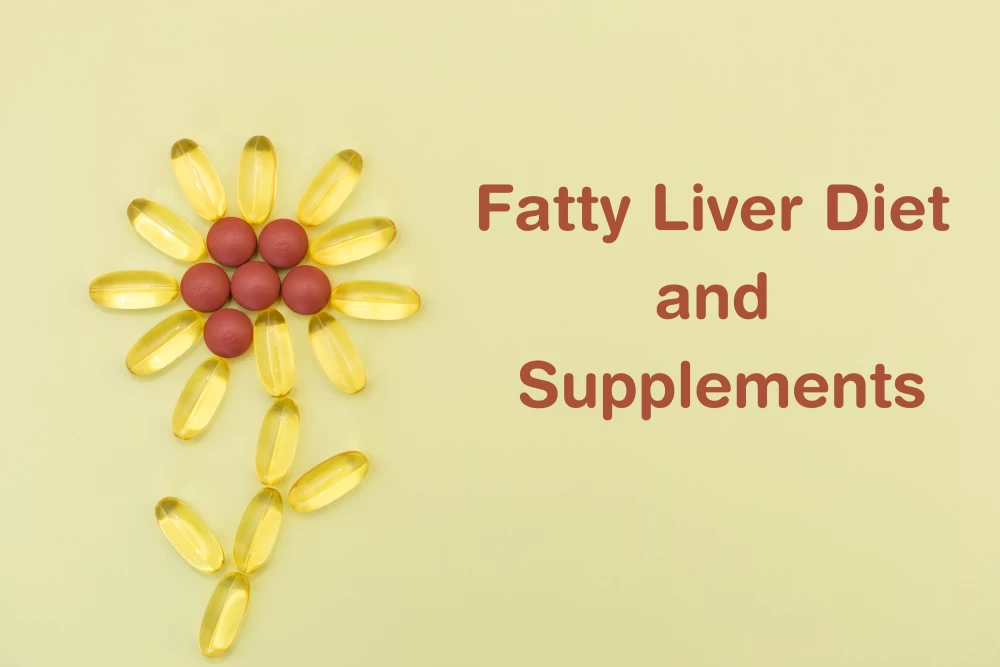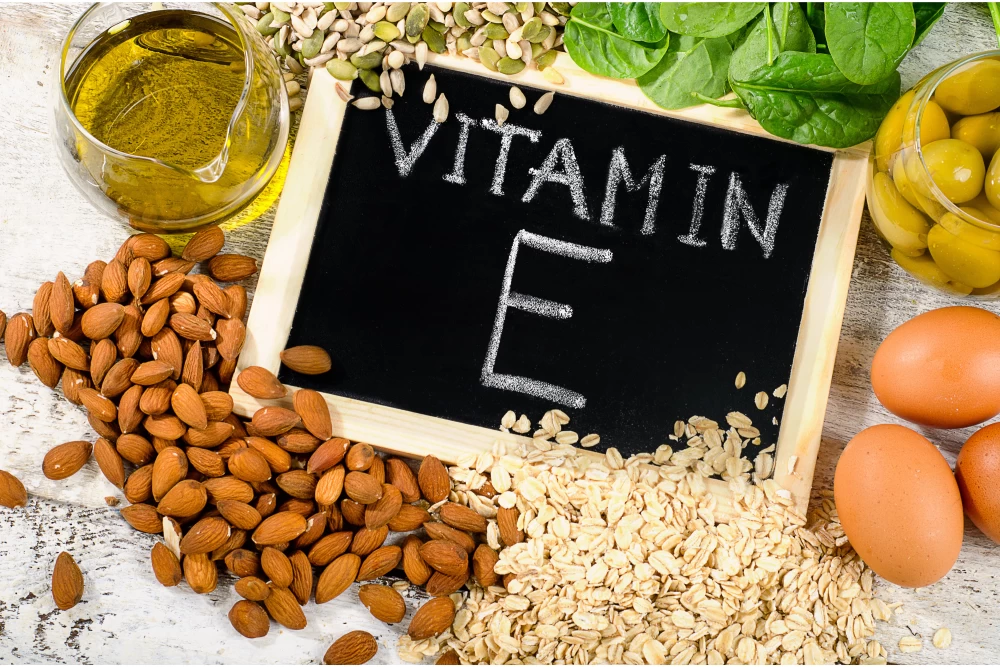
- 20th March 2023
Table of Contents
Fatty Liver
When it comes to managing fatty liver, a healthy diet and supplements play an essential role. A diet that is low in fat and high in fiber is recommended for individuals with fatty liver disease. This includes incorporating plenty of fruits, vegetables, whole grains, lean proteins, and healthy fats into their diets. Supplements like milk thistle, turmeric extract, and omega-3 fatty acids have been shown to be effective in reducing inflammation and improving liver function. However, it's important to note that not all supplements are created equal. It's crucial to choose high-quality supplements from reputable sources. On the other hand, certain supplements such as vitamin E or A can do more harm than good when taken in large doses. Therefore, it's essential to speak with a healthcare provider before starting any supplement regimen. Overall, following a healthy diet plan and taking appropriate supplements may help improve liver health for those with fatty liver disease.
Causes of Fatty Liver
The causes of fatty liver are varied, and often stem from lifestyle choices. One of the most common culprits is a diet high in processed foods and added sugars, which can lead to insulin resistance and eventually cause fat to accumulate in the liver. Additionally, excessive alcohol consumption can also contribute to fatty liver disease by causing inflammation and damage to liver cells. Other factors that may increase the risk of developing fatty liver include obesity, high cholesterol levels, and type 2 diabetes. Genetics can also play a role; some people may have an inherited predisposition to storing excess fat in their livers. While there is no one-size-fits-all solution for treating fatty liver disease, adopting a healthy lifestyle that includes regular exercise and a balanced diet low in processed foods and added sugars can help reduce the risk of developing this condition. Certain supplements such as milk thistle extract have shown promise in improving liver health but should always be taken under medical supervision.
Diet to Manage Fatty Liver
When it comes to managing a fatty liver, diet is key. The goal is to reduce the amount of fat in the liver and promote healthy liver function. This means avoiding foods that are high in saturated fats, trans fats, and added sugars. Instead, focus on eating plenty of fruits and vegetables, whole grains, lean proteins, and healthy fats like those found in nuts, seeds, and fatty fish. In addition to making dietary changes, some supplements may also be helpful for managing a fatty liver. Milk thistle has been shown to have antioxidant properties that can help protect the liver from damage caused by free radicals. Other supplements like vitamin E and omega-3 fatty acids may also have benefits for reducing inflammation in the liver. It's important to note that while diet and supplements can be helpful for managing a fatty liver, they should not be used as a substitute for medical advice or treatment from a healthcare provider. If you suspect you have a fatty liver or any other health concerns related to your liver function, it's important to speak with your doctor about appropriate diagnosis and treatment options.
Supplements for Fatty Liver
Fatty liver disease, also known as hepatic steatosis, is a condition that occurs when fat accumulates in the liver. The buildup of fat can cause inflammation and damage to the liver over time. While there are medications available to treat fatty liver disease, many people turn to supplements as an alternative or complementary treatment option. One supplement that has shown promise for fatty liver disease is milk thistle. Milk thistle contains silymarin, a compound with antioxidant and anti-inflammatory properties that may help protect the liver from damage caused by free radicals. Another supplement that has been studied for its potential benefits on fatty liver disease is omega-3 fatty acids. Omega-3s are known to have anti-inflammatory effects and may help reduce inflammation in the liver. However, it's important to note that not all supplements are effective for treating fatty liver disease, and some may even be harmful. For example, high doses of vitamin A can be toxic to the liver and should be avoided if you have fatty liver disease. It's always best to talk to your doctor before taking any supplements for your condition to ensure they won't interfere with other medications you're taking or worsen your symptoms.

What Works & What Doesn't
When it comes to fatty liver disease, adopting a healthy diet can go a long way in reducing symptoms and promoting overall liver health. While there are numerous supplements on the market claiming to improve liver function, not all of them are backed by research. Milk thistle is one supplement commonly used for its potential liver-protective effects. While some studies suggest that milk thistle may offer benefits for those with fatty liver disease, others have found no significant effects. Another supplement often touted for its potential benefits in treating fatty liver disease is omega-3 fatty acids. Found in fish oil and other sources, omega-3s have been shown to reduce inflammation and improve insulin resistance - two factors that can contribute to the development of non-alcoholic fatty liver disease (NAFLD). However, it's important to note that while omega-3s may be helpful as part of an overall healthy diet plan for managing NAFLD, they should not be relied upon as a sole treatment option. In addition to dietary changes and supplements, regular exercise has also been shown to benefit those with NAFLD. Aerobic exercise can help reduce insulin resistance and inflammation while improving overall cardiovascular health - all factors that can contribute to improved outcomes for those with this condition. Ultimately, when it comes to managing fatty liver disease through lifestyle interventions like diet and exercise, consulting with a healthcare provider or registered nutritionist is key in developing an individualized plan that best suits your needs.
Common Side Effects
Common side effects are an unavoidable aspect of consuming any medication, supplement or dietary program. When it comes to fatty liver diets and supplements, there are some common side effects that one must be aware of. Firstly, some people may experience gastrointestinal discomfort such as bloating, gas, diarrhea or constipation when they start a new diet or supplement regimen. This is because their body is adjusting to the new changes in their dietary habits. Secondly, some of the supplements recommended for treating fatty liver disease may interact with prescription medications which can result in adverse reactions. For example, milk thistle has been found to interfere with certain drugs used for managing diabetes and high blood pressure. Lastly, certain diets like low-carb diets may lead to headaches and fatigue due to a decrease in glucose levels in the body. Therefore it's essential to consult with your doctor before starting any diet or supplement regimen as they will help you identify potential side effects and guide you on how best to manage them while on this journey towards better health.
Conclusion
In conclusion, lifestyle changes such as maintaining a healthy diet and regular exercise are crucial in managing fatty liver disease. The most effective dietary approach is to limit or avoid foods that are high in sugar, saturated fat, and refined carbohydrates. Instead, opt for a balanced diet consisting of fruits, vegetables, whole grains, lean protein sources like fish and poultry. While there are many supplements marketed for treating fatty liver disease, research on their effectiveness is still limited. Some studies have shown promising results with certain supplements like vitamin E and omega-3 fatty acids. However, it's important to consult with a healthcare provider before taking any supplements as they may interact with other medications or have adverse effects. Overall, the key takeaway is that making sustainable lifestyle changes is the best way to manage and prevent fatty liver disease. It may take time and effort to adopt these changes but the long-term benefits are worth it in terms of improving overall health outcomes.














